Cardiovascular Risk
How to submit an article:
- Registered users can submit any published journal article that has a unique DOI (Digital Object Identifier) name or link to Research Hub.
- For example, you can paste the full DOI link:
https://doi.org/10.1109/5.771073or just the DOI name:10.1109/5.771073into the field above and click submit. - The person who is first to submit a valid article to Research Hub will forever be credited for it, and every article submission earns you +6 Research Points.
Related Topics
Published research studies are articles that present the findings of original research that has undergone a peer-review process and has been made publicly available in scholarly journals, books or other media.
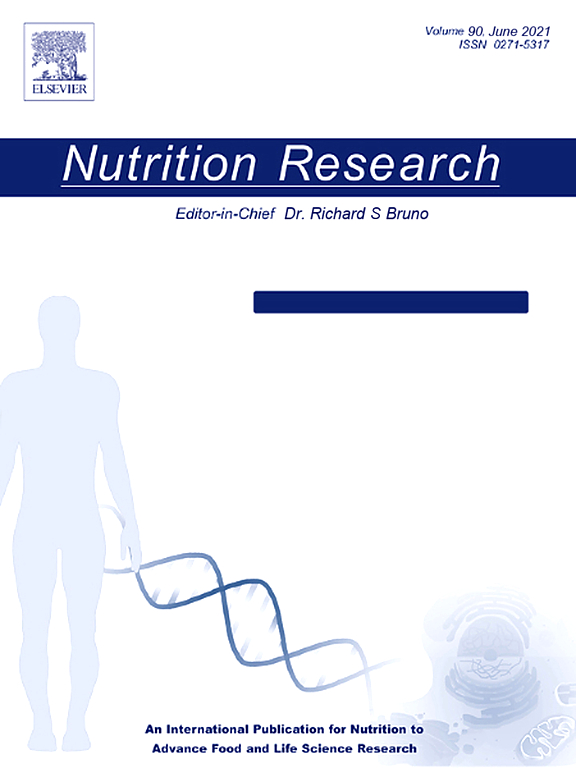
Pecan-enriched diet improves cholesterol profiles and enhances postprandial microvascular reactivity in older adults
2023 Mar Nutrition Research Cogan B, Pearson RC, Paton CM, Jenkins NT, Cooper JA
Daily consumption of 68 g of pecans for 4 weeks resulted in greater reductions in fasting total cholesterol, low-density lipoprotein (LDL) cholesterol, non-high-density lipoprotein cholesterol, LDL particle number, and LDL medium compared to a nut-free diet. Postprandial triglyceride levels were suppressed with pecan consumption, and improvements in microvascular reactivity were observed. Fasting macro- and microvascular function remained unaffected. The findings suggest that pecan consumption may contribute to improved vascular health and reduced cardiovascular risk in older adults.
Clinical Study Randomised Controlled Trial Cholesterol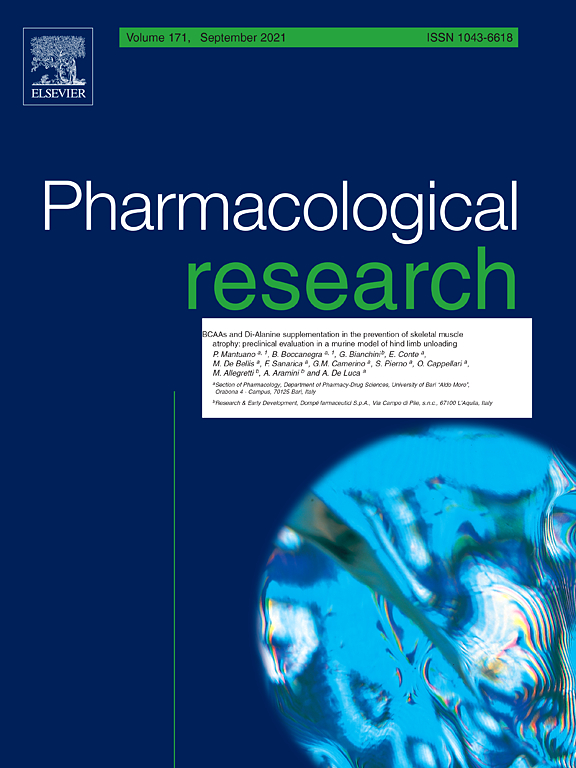
Coffee or tea: Anti-inflammatory properties in the context of atherosclerotic cardiovascular disease prevention
2023 Jan Pharmacological Research Surma S, Sahebkar A, Banach M
Review Article Meta-Analysis Cardiovascular Disease Coffee Anti-Inflammatory TeaConsumption of tea and coffee may possibly provide anti-inflammatory effects, contributing to reduced cardiovascular risk and mortality.

To eat or not to eat—an exploratory randomized controlled trial on fasting and plant-based diet in rheumatoid arthritis (NutriFast-Study)
2022 Nov 02 Frontiers in Nutrition Hartmann AM, Dell'Oro M, Spoo M, Fischer JM, Steckhan N, Jeitler M, et al.
Randomised Controlled Trial Plant-Based Diet Cardiovascular Risk Rheumatoid ArthritisFasting followed by a plant-based diet and a standard diet both positively affected rheumatoid arthritis disease activity and cardiovascular risk factors, without discernible differences.
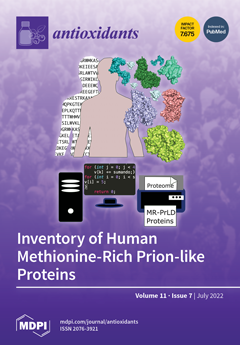
Antioxidant Properties and Beneficial Cardiovascular Effects of a Natural Extract of Pomegranate in Healthy Volunteers: A Randomized Preliminary Single-Blind Controlled Study
2022 Oct 28 Antioxidants Al-Dujaili EAS, Casey C, Stockton A
Randomised Controlled Trial Clinical Study Cardiovascular Disease Pomegranate High Blood PressurePomegranate extract consumption improves antioxidant levels, reduces oxidative stress and cardiovascular risk factors including blood pressure and body fat, and increases lean body mass.
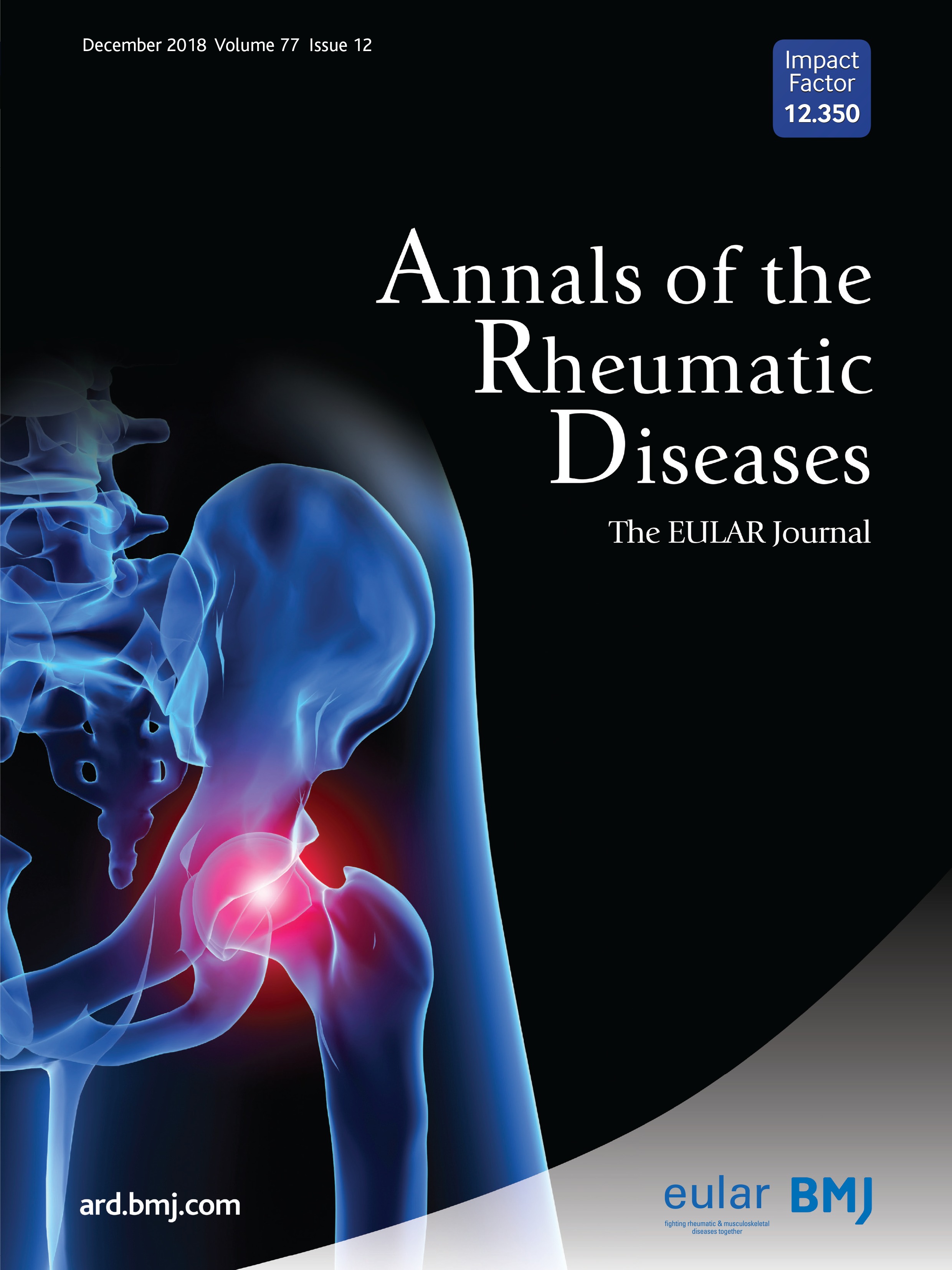
POS0583 RHEUMATOID ARTHRITIS BENEFITS FROM FASTING AND PLANT-BASED DIET: AN EXPLORATORY RANDOMIZED CONTROLLED TRIAL (NUTRIFAST)
2022 May 23 Annals of the Rheumatic Diseases Hartmann AM, Kandil FI, Steckhan N, Häupl T, Kessler CS, Michalsen A, et al.
Randomised Controlled Trial Plant-Based Diet Intermittent Fasting Rheumatoid ArthritisFasting followed by a plant-based diet positively impacts disease activity and cardiovascular risk factors in rheumatoid arthritis patients.
Research insights are moderated by the Research Hub team and offer an at-a-glance overview of interesting research findings.

2023 Pharmacological Research
Consumption of tea and coffee may possibly provide anti-inflammatory effects, contributing to reduced cardiovascular risk and mortality.
Review Article Anti-Inflammatory Cardiovascular Disease Coffee Tea
Coffee or tea: Anti-inflammatory properties in the context of atherosclerotic cardiovascular disease prevention
Surma S, Sahebkar A, Banach M

2022 Frontiers in Nutrition
Fasting followed by a plant-based diet and a standard diet both positively affected rheumatoid arthritis disease activity and cardiovascular risk factors, without discernible differences.
Randomised Controlled Trial Plant-Based Diet Rheumatoid Arthritis
To eat or not to eat—an exploratory randomized controlled trial on fasting and plant-based diet in rheumatoid arthritis (NutriFast-Study)
Hartmann AM, Dell'Oro M, Spoo M, Fischer JM, Steckhan N, Jeitler M, et al.

2022 Antioxidants
Pomegranate extract consumption improves antioxidant levels, reduces oxidative stress and cardiovascular risk factors including blood pressure and body fat, and increases lean body mass.
Randomised Controlled Trial Cardiovascular Disease High Blood Pressure Pomegranate
Antioxidant Properties and Beneficial Cardiovascular Effects of a Natural Extract of Pomegranate in Healthy Volunteers: A Randomized Preliminary Single-Blind Controlled Study
Al-Dujaili EAS, Casey C, Stockton A

2022 Annals of the Rheumatic Diseases
Fasting followed by a plant-based diet positively impacts disease activity and cardiovascular risk factors in rheumatoid arthritis patients.
Randomised Controlled Trial Intermittent Fasting Plant-Based Diet Rheumatoid Arthritis
POS0583 RHEUMATOID ARTHRITIS BENEFITS FROM FASTING AND PLANT-BASED DIET: AN EXPLORATORY RANDOMIZED CONTROLLED TRIAL (NUTRIFAST)
Hartmann AM, Kandil FI, Steckhan N, Häupl T, Kessler CS, Michalsen A, et al.

2022 Frontiers in Nutrition
Regular peanut consumption appears to positively influence lipid metabolism, reducing levels of triglycerides in the blood.
Meta-Analysis Peanut Triglyceride
Effect of Peanut Consumption on Cardiovascular Risk Factors: A Randomized Clinical Trial and Meta-Analysis
Parilli-Moser I, Hurtado-Barroso S, Guasch-Ferré M, Lamuela-Raventós RM
Review Articles
Review articles summarise and critically evaluate the current state of research on a specific topic or field by synthesising multiple primary research studies.

Coffee or tea: Anti-inflammatory properties in the context of atherosclerotic cardiovascular disease prevention
2023 Jan Pharmacological Research Surma S, Sahebkar A, Banach M
Review Article Meta-Analysis Cardiovascular Disease Coffee Anti-Inflammatory TeaConsumption of tea and coffee may possibly provide anti-inflammatory effects, contributing to reduced cardiovascular risk and mortality.
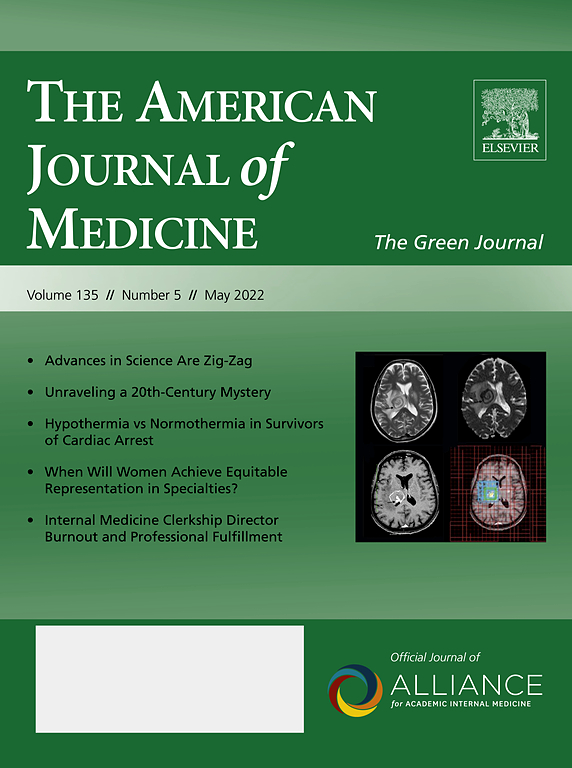
Impact of Coffee Consumption on Physiological Markers of Cardiovascular Risk: A Systematic Review
2021 May The American Journal of Medicine Daneschvar HL, Smetana GW, Brindamour L, Bain PA, Mukamal KJ
Systematic Review Coffee Cardiovascular DiseaseCoffee consumption, particularly boiled coffee, may increase levels of certain cardiovascular risk markers, but no strong link was found to anti-inflammatory effects.
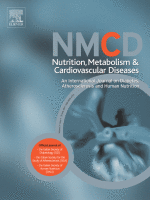
The effects of Canola oil on cardiovascular risk factors: A systematic review and meta-analysis with dose-response analysis of controlled clinical trials
2020 Nov Nutrition, Metabolism and Cardiovascular Diseases Amiri M, Raeisi-Dehkordi H, Sarrafzadegan N, Forbes SC, Salehi-Abargouei A
Canola oil (CO) significantly reduced total cholesterol, low-density lipoprotein cholesterol (LDL-C), LDL-C to high-density lipoprotein cholesterol ratio (LDL/HDL), total cholesterol to HDL ratio (TC/HDL), apolipoprotein B (Apo B), and Apo B/Apo A-1 compared to other edible oils, including olive oil, sunflower oil, and saturated fats. Replacing CO with ~15% of total caloric intake provided the greatest benefits based on the nonlinear dose–response curve.
Systematic Review Meta-Analysis Canola Oil
Acupuncture and related techniques for obesity and cardiovascular risk factors: a systematic review and meta-regression analysis
2020 Apr 20 Acupuncture in Medicine Chen J, Chen D, Ren Q, et al.
In the short term, acupuncture and related techniques may produce a small but statistically significant degree of weight loss based on moderate- to low-quality evidence, and improve serum lipid parameters based on low- to very-low-quality evidence. Their effects on blood glucose and blood pressure remain uncertain.
Systematic Review Meta-Analysis Acupuncture Obesity High Blood Pressure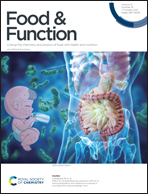
Effects of strawberry supplementation on cardiovascular risk factors: a comprehensive systematic review and meta-analysis of randomized controlled trials
2019 Jan Food & Function Hadi A, Askarpour M, Miraghajani M, Symonds ME, Sheikhi A, Ghaedi E
Dietary supplementation with strawberries improved specific CVD risk factors, suggesting that larger well-designed, adequately powered, and longer-term follow up studies should now be undertaken.
Systematic Review Meta-Analysis Cholesterol CRP Diastolic Blood Pressure LDL StrawberryClinical Trials
Clinical trials are research studies that involve people and are conducted to evaluate the safety and efficacy of new treatments or interventions, such as drugs, medical devices, or behavioural therapies.

Pecan-enriched diet improves cholesterol profiles and enhances postprandial microvascular reactivity in older adults
2023 Mar Nutrition Research Cogan B, Pearson RC, Paton CM, Jenkins NT, Cooper JA
Daily consumption of 68 g of pecans for 4 weeks resulted in greater reductions in fasting total cholesterol, low-density lipoprotein (LDL) cholesterol, non-high-density lipoprotein cholesterol, LDL particle number, and LDL medium compared to a nut-free diet. Postprandial triglyceride levels were suppressed with pecan consumption, and improvements in microvascular reactivity were observed. Fasting macro- and microvascular function remained unaffected. The findings suggest that pecan consumption may contribute to improved vascular health and reduced cardiovascular risk in older adults.
Clinical Study Randomised Controlled Trial Cholesterol
To eat or not to eat—an exploratory randomized controlled trial on fasting and plant-based diet in rheumatoid arthritis (NutriFast-Study)
2022 Nov 02 Frontiers in Nutrition Hartmann AM, Dell'Oro M, Spoo M, Fischer JM, Steckhan N, Jeitler M, et al.
Randomised Controlled Trial Plant-Based Diet Cardiovascular Risk Rheumatoid ArthritisFasting followed by a plant-based diet and a standard diet both positively affected rheumatoid arthritis disease activity and cardiovascular risk factors, without discernible differences.

Antioxidant Properties and Beneficial Cardiovascular Effects of a Natural Extract of Pomegranate in Healthy Volunteers: A Randomized Preliminary Single-Blind Controlled Study
2022 Oct 28 Antioxidants Al-Dujaili EAS, Casey C, Stockton A
Randomised Controlled Trial Clinical Study Cardiovascular Disease Pomegranate High Blood PressurePomegranate extract consumption improves antioxidant levels, reduces oxidative stress and cardiovascular risk factors including blood pressure and body fat, and increases lean body mass.

POS0583 RHEUMATOID ARTHRITIS BENEFITS FROM FASTING AND PLANT-BASED DIET: AN EXPLORATORY RANDOMIZED CONTROLLED TRIAL (NUTRIFAST)
2022 May 23 Annals of the Rheumatic Diseases Hartmann AM, Kandil FI, Steckhan N, Häupl T, Kessler CS, Michalsen A, et al.
Randomised Controlled Trial Plant-Based Diet Intermittent Fasting Rheumatoid ArthritisFasting followed by a plant-based diet positively impacts disease activity and cardiovascular risk factors in rheumatoid arthritis patients.

Effect of Peanut Consumption on Cardiovascular Risk Factors: A Randomized Clinical Trial and Meta-Analysis
2022 Apr 01 Frontiers in Nutrition Parilli-Moser I, Hurtado-Barroso S, Guasch-Ferré M, Lamuela-Raventós RM
Meta-Analysis Randomised Controlled Trial Peanut TriglycerideRegular peanut consumption appears to positively influence lipid metabolism, reducing levels of triglycerides in the blood.
Study Protocols
Published study protocols are detailed plans that outline the objectives, methodology, statistical analyses, and organisation of a research study that have been made publicly available for others to review and use as a reference.
Presentation Slides

Review Article
Consumption of tea and coffee may possibly provide anti-inflammatory effects, contributing to reduced cardiovascular risk and mortality.
Surma S, Sahebkar A, Banach M

Randomised Controlled Trial
Fasting followed by a plant-based diet and a standard diet both positively affected rheumatoid arthritis disease activity and cardiovascular risk factors, without discernible differences.
Hartmann AM, Dell'Oro M, Spoo M, Fischer JM, Steckhan N, Jeitler M, Häupl T, Kandil FI, Michalsen A, Koppold-Liebscher DA, Kessler CS

Randomised Controlled Trial
Pomegranate extract consumption improves antioxidant levels, reduces oxidative stress and cardiovascular risk factors including blood pressure and body fat, and increases lean body mass.
Al-Dujaili EAS, Casey C, Stockton A

Randomised Controlled Trial
Fasting followed by a plant-based diet positively impacts disease activity and cardiovascular risk factors in rheumatoid arthritis patients.
Hartmann AM, Kandil FI, Steckhan N, Häupl T, Kessler CS, Michalsen A, Koppold-Liebscher DA

Meta-Analysis
Regular peanut consumption appears to positively influence lipid metabolism, reducing levels of triglycerides in the blood.
Parilli-Moser I, Hurtado-Barroso S, Guasch-Ferré M, Lamuela-Raventós RM

Randomised Controlled Trial
Moderate daily consumption of beer, both with and without alcohol, can significantly alleviate menopause-related symptoms and improve cardiovascular health in postmenopausal women.
Trius-Soler M, Marhuenda-Muñoz M, Laveriano-Santos EP, Martínez-Huélamo M, Sasot G, Storniolo CE, Estruch R, Lamuela-Raventós RM, Tresserra-Rimbau A

Systematic Review
Coffee consumption, particularly boiled coffee, may increase levels of certain cardiovascular risk markers, but no strong link was found to anti-inflammatory effects.
Daneschvar HL, Smetana GW, Brindamour L, Bain PA, Mukamal KJ
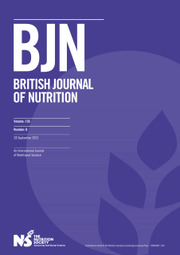
Meta-Analysis
Strawberry interventions significantly reduced CRP levels and may improve total cholesterol and LDL-cholesterol in individuals with high baseline levels.
Gao Q, Qin LQ, Arafa A, Eshak ES, Dong JY

Randomised Controlled Trial
Daily intake of 3 grams of oat beta-glucans significantly reduces LDL-Cholesterol, Total Cholesterol, and non-HDL-Cholesterol levels without impacting intestinal well-being or glucose levels.
Cicero AFG, Fogacci F, Veronesi M, Strocchi E, Grandi E, Rizzoli E, Poli A, Marangoni F, Borghi C

Randomised Controlled Trial
Consuming walnuts daily can reduce cardiovascular risk factors in chronic kidney disease patients without altering significant physiological levels.
Sanchis P, Molina M, Berga F, Muñoz E, Fortuny R, Costa-Bauzá A, Grases F, Buades JM

Randomised Controlled Trial
Synbiotic pomegranate juice daily consumption for 8 weeks enhances metabolic, oxidative, inflammatory, and blood pressure outcomes in females with Polycystic Ovarian Syndrome.
Esmaeilinezhad Z, Barati-Boldaji R, Brett NR, de Zepetnek JOT, Bellissimo N, Babajafari S, Sohrabi Z
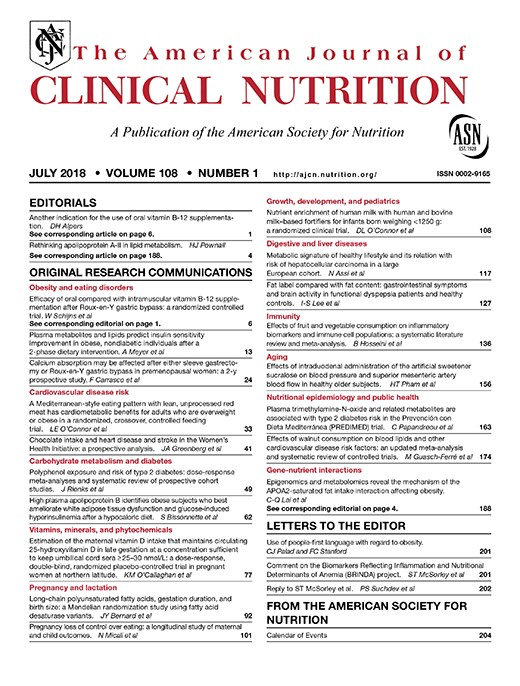
Systematic Review
Incorporating walnuts into the diet improved blood lipid profile without adversely affecting body weight or blood pressure.
Marta Guasch-Ferré, Jun Li, Frank B Hu, Jordi Salas-Salvadó, Deirdre K Tobias
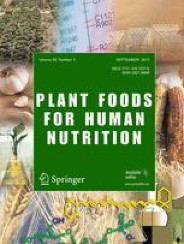
Randomised Controlled Trial
Pomegranate juice intake can reduce systolic and diastolic blood pressure and inflammation markers, but may increase triglyceride and very low-density lipoprotein cholesterol levels.
Moazzen H, Alizadeh M
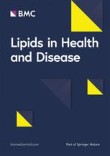
Randomised Controlled Trial
A sardine-enriched diet may have beneficial effects on cardiovascular risk and alters gut microbiota composition in patients with type 2 diabetes.
Balfegó M, Canivell S, Hanzu FA, Sala-Vila A, Martínez-Medina M, Murillo S, Mur T, Ruano EG, Linares F, Porras N, Valladares S, Fontalba M, Roura E, Novials A, Hernández C, Aranda G, Sisó-Almirall A, Rojo-Martínez G, Simó R, Gomis R
Executive Summary
Write an executive summary in the form of a blog article on the topic of "Research into Chinese medicine treatment for Cardiovascular Risk" summarising the research below and using language that can be easily understood by patients and avoiding medical jargon using a professional and caring tone of voice.
Write an executive summary in the form of a blog article on the topic of "Researched Chinese medicine treatments for Cardiovascular Risk" summarising the research below in an objective and easy to understand way, and using language that can be easily understood by patients. Group the article into Chinese medicine treatments first, followed by nutrition and other treatments. Avoid using medical jargon and use a professional and caring tone of voice.
Write me a concise but easy to understand executive summary on the topic of "Chinese medicine treatments for Cardiovascular Risk" based on the following research that I will give you. Your summary should be 2 paragraphs long in Australian English spelling and include references to the studies.
A Review Article published in 2023 in the journal Pharmacological Research found that Consumption of tea and coffee may possibly provide anti-inflammatory effects, contributing to reduced cardiovascular risk and mortality. The methodology of this narrative review examined the potential anti-inflammatory properties of consuming tea and coffee as a factor in reducing the risk of cardiovascular disease. This was done by analyzing a plethora of studies and meta-analyses that explored the impact of diet on inflammation, with a keen focus on the consumption of these beverages. The studies looked at a variety of risk factors for atherosclerotic cardiovascular disease, including inflammation biomarkers such as C-reactive protein, along with the impact of modern lipid-lowering treatments. In discussing the results, it was noticed that inconsistent findings were produced from the analysed studies which made a conclusive determination challenging. However, a trend was observed where drinking tea and coffee seemed to raise adiponectin levels, reduce reactive oxygen species and lower low-density lipoprotein cholesterol levels. Despite these potential anti-inflammatory properties of tea and coffee being somewhat uncertain due to various confounding factors, their consumption is still recommended as part of a healthy diet.
A Randomised Controlled Trial published in 2022 in the journal Frontiers in Nutrition found that Fasting followed by a plant-based diet and a standard diet both positively affected rheumatoid arthritis disease activity and cardiovascular risk factors, without discernible differences. In this research, 53 rheumatoid arthritis patients were divided into two equal groups. One group underwent a 7-day fast and thereafter followed an 11-week plant-based diet. The second group adhered to a 12-week standard diet based on the dietary recommendations of the German society for nutrition. The main metric of comparison between the two groups was the change from baseline to 12 weeks on the Health Assessment Questionnaire Disability Index. The research showed that the fasting group noted an early improvement by day 7 and remained stable over 12 weeks. Meanwhile, the standard diet group showed slower but positive enhancements at 6 and 12 weeks. Furthermore, both dietary methods contributed to an improvement in disease activity scores of all the patients by week 12. Also, an advancement in cardiovascular risk factors, notably weight loss, was more prominent in the fasting group than the standard diet group.
A Randomised Controlled Trial published in 2022 in the journal Antioxidants found that Pomegranate extract consumption improves antioxidant levels, reduces oxidative stress and cardiovascular risk factors including blood pressure and body fat, and increases lean body mass. In the study, 24 healthy participants were divided into two groups: one consumed a natural standardized pomegranate extract, while the other, a placebo, in a randomized, single-blind placebo-controlled trial. Evaluations were conducted at baseline and post 14 and 28 days of the experiment, with variables including anthropometric measurements, blood pressure, pulse wave speed, body composition, as well as the levels of salivary and urinary cortisol, cortisone, total phenolics, antioxidant capacity, and lipid peroxidation. The results indicated significant increases in urinary total phenolics excretion and antioxidant capacity after 14 and 28 days of pomegranate extract intake. By day 28, notable decreases were noted in systolic and diastolic blood pressure, pulse wave velocity, body fat and fat mass, and an increase in lean body mass. In terms of glucocorticoid levels, there was a marked decrease in saliva cortisol at day 28 in the morning for the pomegranate extract group, along with a decrease in the cortisol/cortisone ratio following 28 days of pomegranate extract intake at morning, noon, and evening. Reductions were also seen in urine free cortisol levels by day 14. These observations were unique to the pomegranate extract group, with no significant changes noted in the placebo group.
A Randomised Controlled Trial published in 2022 in the journal Annals of the Rheumatic Diseases found that Fasting followed by a plant-based diet positively impacts disease activity and cardiovascular risk factors in rheumatoid arthritis patients. In the pilot study, patients with rheumatoid arthritis (RA) were split into two groups: one underwent a 7-day fast (consuming no more than 250 calories per day), followed by 11 weeks of a plant-based diet; the other was provided with conventional nutritional counseling according to the recommendations of the German Society for Nutrition for a total of 12 weeks. Disease activity and treatment responses were evaluated at the beginning of the experiment, day 7, week 6, and week 12. The results showed improvements in disease activity in both the fasting and conventional nutritional counseling groups. Noteworthy was the fact that the fasting group started showing improvements by day 7 as opposed to week 6 in the conventional group. Additionally, cardiovascular risk factors, such as weight and total cholesterol levels, showed more marked improvement in the fasting group compared to the conventional group. These improvements were found to be independent of any antibody status, intervention delivery method, or previous eating habits.
A Meta-Analysis published in 2022 in the journal Frontiers in Nutrition found that Regular peanut consumption appears to positively influence lipid metabolism, reducing levels of triglycerides in the blood. In the ARISTOTLE study, a randomized control trial was conducted with 63 participants who consumed either 25g/day of skin roasted peanuts, two tablespoons of peanut butter per day, or two tablespoons per day of a control butter based on peanut oil alongside their usual diet for a period of 6 months. This was done to understand the impact of regular peanut consumption on anthropometric, biochemical, and clinical measurements. Additionally, a meta-analysis was carried out incorporating data from several clinical trials, including the aforementioned ARISTOTLE study, to further consider the effects of consuming peanuts and peanut butter in both healthy individuals and those at a high cardiometabolic risk. The findings from the ARISTOTLE study indicated that lower total cholesterol/HDL-cholesterol and LDL-cholesterol/HDL-cholesterol ratios were observed in the group consuming skin roasted peanuts compared to the control butter group. Furthermore, the meta-analysis of clinical trials highlighted an association between peanut consumption and a decrease in triglycerides. It was seen that healthy consumers had lower total cholesterol and LDL-cholesterol/HDL-cholesterol ratios compared to control groups. However, it was also discovered that individuals at a high cardiometabolic risk experienced an increase in body weight following the peanut interventions, despite no change in body fat or body mass index. From the dose-response analyses, it was inferred that body weight slightly escalated with higher dosages of peanuts.
A Randomised Controlled Trial published in 2021 in the journal Nutrients found that Moderate daily consumption of beer, both with and without alcohol, can significantly alleviate menopause-related symptoms and improve cardiovascular health in postmenopausal women. In the research, 37 postmenopausal women were voluntarily put through a parallel controlled intervention trial, involving three study groups. The trial involved 16 women consuming beer with alcohol (330 mL/day), 7 women consuming non-alcoholic beer (660 mL/day), and 14 women as control. In assessing the results, it was found that both interventions, beer with and without alcohol, substantially reduced the severity of menopause-associated symptoms. Specifically, beer with alcohol positively contributed to reducing psychological discomforts linked to menopause when compared to the control group. It was additionally noted that these beneficial effects could be traced to the non-alcoholic section of the beer, as the sex hormone profile remained largely unchanged across the different study groups. In addition, the group that consumed non-alcoholic beer conveyed improvements in their lipid profiles and exhibited lower blood pressure levels, indicating better cardiovascular health.
A Systematic Review published in 2021 in the journal The American Journal of Medicine found that Coffee consumption, particularly boiled coffee, may increase levels of certain cardiovascular risk markers, but no strong link was found to anti-inflammatory effects. Methodically considering pre-selected databases such as PubMed, Embase, CINAHL and more, this study rigorously searched for randomized controlled trials to analyse the impacts of coffee consumption on inflammatory indicators of cardiovascular risk. Duplicate data and trials that did not meet the study's criteria were removed. The remaining 17 studies that passed scrutiny were included in the analysis, looking particularly at effects of coffee on cholesterol levels, apolipoprotein B levels and interleukin 6 levels. This comprehensive review resulted in interesting findings. Boiled coffee emerged as a potential culprit for increased levels of total and low-density lipoprotein cholesterol along with apolipoprotein B. Filtered coffee, on the other hand, did not show similar trends. In one trial, caffeinated coffee showed a noteworthy increase in blood interleukin 6 levels compared to participants who did not consume coffee. However, no robust anti-inflammatory effects connected to coffee consumption could be confidently ascertained to be a significant factor in reducing mortality rates related to cardiovascular disease.
A Meta-Analysis published in 2020 in the journal British Journal of Nutrition found that Strawberry interventions significantly reduced CRP levels and may improve total cholesterol and LDL-cholesterol in individuals with high baseline levels. We included eleven RCT in this meta-analysis (six for blood pressure, seven for lipid profile, seven for fasting blood glucose and six for C-reactive protein (CRP)). Overall, the strawberry interventions significantly reduced CRP levels by 0·63 (95 % CI −1·04, −0·22) mg/l but did not affect blood pressure, lipid profile or fasting blood glucose in the main analyses. Our analysis stratified by baseline endpoint levels showed the strawberry interventions significantly reduced TC among people with baseline levels >5 mmol/l (−0·52 (95 % CI −0·88, −0·15) mmol/l) and reduced LDL-cholesterol among people with baseline levels >3 mmol/l (−0·31 (95 % CI −0·60, −0·02) mmol/l). There was little evidence of heterogeneity in the analysis and no evidence of publication bias.
A Randomised Controlled Trial published in 2020 in the journal Nutrients found that Daily intake of 3 grams of oat beta-glucans significantly reduces LDL-Cholesterol, Total Cholesterol, and non-HDL-Cholesterol levels without impacting intestinal well-being or glucose levels. The BELT Study was a double-blind, placebo-controlled, cross-over randomized clinical trial conducted over 8 weeks. It involved 83 Italian subjects with moderate hypercholesterolemia, who had low cardiovascular risk and followed a Mediterranean diet. The participants were administered either 3g/day of oat beta-glucans or a placebo. The results indicated that beta-glucans significantly reduced LDL-C, TC, and non-HDL-C levels in participants from both the baseline and the 4 and 8-week marks. However, no notable impact was observed on fasting plasma glucose or self-perceived intestinal well-being. These outcomes remained consistent irrespective of whether the subjects were given the beta-glucans or the placebo.
A Randomised Controlled Trial published in 2019 in the journal Nutrients found that Consuming walnuts daily can reduce cardiovascular risk factors in chronic kidney disease patients without altering significant physiological levels. In this prospective, randomized, crossover, pilot clinical trial, 13 patients suffering from chronic kidney disease were selected as subjects. They were randomly divided into two groups, one of which was assigned a diet including 30 grams of walnuts each day while the other followed a control diet. After a duration of 30 days, a washout period of an additional 30 days was allowed, following which the groups were switched to the alternate diet. Key markers such as urinary and serum levels of phosphorous and potassium, multiple vascular risk factors, and urinary inositol phosphates were measured before initiating the trial and post the intervention period. The study indicated that a dietary supplement of walnuts resulted in reduced blood pressure, lower LDL cholesterol, and decreased albumin excretion. Interestingly, despite these changes, it had no impact on the physiological levels of phosphorous, potassium, parathyroid hormone, and fibroblast growth factor 23. This indicates that daily consumption of walnuts, when incorporated in a sodium, protein, phosphate, and potassium controlled diet, has the potential to be an effective strategy in reducing cardiovascular risk among chronic kidney disease patients without perturbing key physiological levels.
A Randomised Controlled Trial published in 2019 in the journal Journal of Endocrinological Investigation found that Synbiotic pomegranate juice daily consumption for 8 weeks enhances metabolic, oxidative, inflammatory, and blood pressure outcomes in females with Polycystic Ovarian Syndrome. In this double-blind randomised study over 8 weeks, participants were given 300ml/day of either plain pomegranate juice, a synbiotic beverage, a synbiotic pomegranate juice, or a placebo beverage. Biochemical measures such as lipid profile, total antioxidant capacity, malondialdehyde, and high sensitivity C-reactive protein, as well as blood pressure were evaluated at the start and the end of the trial. Participants who consumed pomegranate juice, the synbiotic beverage or the synbiotic pomegranate juice saw positive changes in their lipid profiles, oxidative stress markers, inflammation indicators and blood pressure levels. Specifically, total cholesterol was lower for those who consumed the synbiotic beverage, while bad cholesterol (LDL-c) was reduced in the synbiotic and synbiotic pomegranate juice groups, and good cholesterol levels (HDL-c) were increased in the plain pomegranate juice and the synbiotic pomegranate juice groups. As for oxidative stress and inflammation, malondialdehyde was lower and total antioxidant capacity was increased in the pomegranate juice and synbiotic pomegranate juice groups. High sensitivity C-reactive protein decreased in the pomegranate juice group. Blood pressure was lower among those who consumed both the synbiotic pomegranate juice and plain pomegranate juice compared to those who had the placebo.
A Systematic Review published in 2018 in the journal The American Journal of Clinical Nutrition found that Incorporating walnuts into the diet improved blood lipid profile without adversely affecting body weight or blood pressure. The present meta-analysis of controlled trials provides robust evidence for the benefits of walnut consumption on blood lipids without adversely affecting body weight or blood pressure and supports the results of epidemiologic studies showing inverse associations between walnut consumption and CVD risk. Despite walnuts being energy-dense, the consumption of walnuts does not promote weight gain and thus they can be incorporated into an overall healthy dietary pattern to enhance health benefits.
A Randomised Controlled Trial published in 2017 in the journal Plant Foods for Human Nutrition found that Pomegranate juice intake can reduce systolic and diastolic blood pressure and inflammation markers, but may increase triglyceride and very low-density lipoprotein cholesterol levels. In this double-blind crossover study involving 30 patients with metabolic syndrome, the subjects were given a daily dose of 500 ml pomegranate juice for a week. After a week-long "wash out" period, the participants were then given a placebo for another week. A range of metrics, including lipid profile, fasting blood glucose, fasting insulin, systolic and diastolic blood pressure, and high-sensitivity C-reactive protein (a marker of inflammation) were measured at the beginning and end of the study. After conducting a repeated measure analysis of variance and a t-test, the researchers found that compared to the placebo, pomegranate juice significantly reduced systolic and diastolic blood pressure as well as inflammation markers. However, it also led to an increase in triglyceride and very low-density lipoprotein cholesterol levels. Other metrics such as the rest of the lipid profile, fasting blood glucose, insulin, and a measure of insulin resistance, showed no notable changes.
A Randomised Controlled Trial published in 2016 in the journal Lipids in Health and Disease found that A sardine-enriched diet may have beneficial effects on cardiovascular risk and alters gut microbiota composition in patients with type 2 diabetes. In the study, 35 patients who were recently diagnosed with type 2 diabetes were divided into two random groups. One was set to follow a standard diet recommended for diabetes (control group), and the other followed similar guidance but included 100 grams of sardines in their diet five days a week (sardine group) for a duration of six months. Scientists measured their anthropometric and dietary information, fasting glycated hemoglobin, glucose, insulin, adiponectin, inflammatory markers, erythrocyte membrane fatty acid composition and specific bacterial strains before and after the dietary intervention. In the conclusion, there was no significant difference in glycemic control between the two groups by the end of the course. However, both sets of patients recorded a decrease in plasma insulin. Most notably, the sardine group also saw an increase in adiponectin levels and the omega-3 index, while decreasing the Firmicutes/Bacteroidetes ratio in gut microbiota composition. It advanced the hypothesis, even though the sardine-enriched diet did not significantly alter glycemic control, it could potentially be beneficial in managing cardiovascular risk in type 2 diabetes patients.
Moderation Tools
Topic
Sign In
Users not signed in are limited to viewing the 5 most recent items of content.